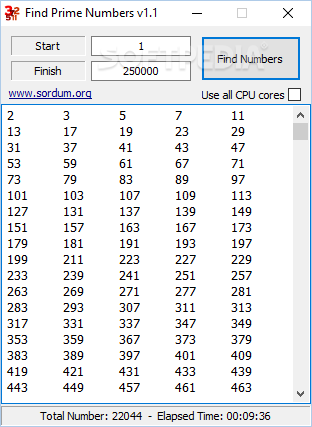

A prime number is a number that cannot be divided by a number other than 1 and itself. n is a natural number (including 0) in the definitions.

More details are in the article for the name. Lists of primes by typeīelow are listed the first prime numbers of many named forms and types. A different computation with a method assuming the Riemann hypothesis found that there are 18435599767349200867866 primes (roughly 2 ×10 22) below 10 24 if the Riemann hypothesis is true. There are known formulas to evaluate the prime-counting function (the number of primes below a given value) faster than computing the primes. The Goldbach conjecture verification project reports that it has computed all primes below 10 18. The following table lists the first 500 primes 20 consecutive primes in each of the 25 rows. 2.90.1 Wieferich primes base 3 (Mirimanoff primes).2.88 Wedderburn-Etherington number primes.2.15 Eisenstein primes without imaginary part.


 0 kommentar(er)
0 kommentar(er)
